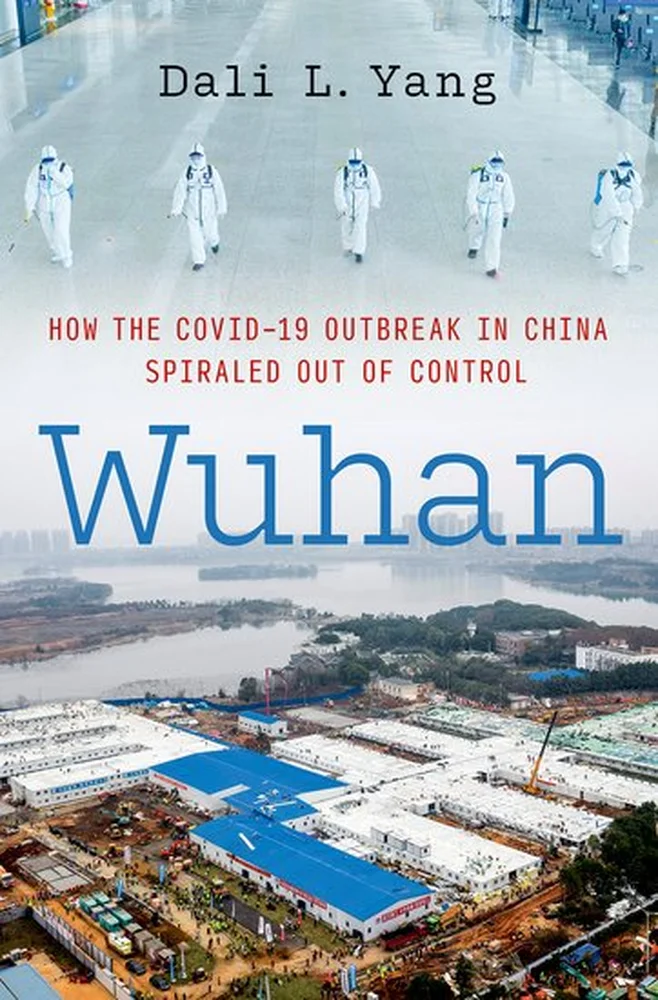
The Department of East Asian Languages and Cultures is delighted to announce the upcoming Kang Endowed Lecture featuring Professor Dali L. Yang at University of Chicago on Apr 17 and 18. As a part of this annual event, a lunch seminar will commence at 12:30 on Apr 18 (Friday) focusing on Yang’s book Wuhan: How the COVID-19 Outbreak in China Spiraled Out of Control, published by Oxford University Press in 2024. This book is praised by many scholars in related fields. For example, Bruce Dickson from George Washington University comments on the book, stating, “In this remarkable book, Dali Yang offers a gripping account of the outbreak of Covid-19 in China: day by day, and even hour by hour. It will be the definitive account of the outbreak and the Chinese government's mishandling of it.”
The seminar will start with a talk by Professor Dali L. Yang. Professor Yujeong Yang in the Department of Political Science will serve as the moderator and major discussant for the seminar. We welcome both faculty members and graduate students interested in China studies, Political Science, Medical Humanities, and related fields to participate in this dialogue.
Participants who sign up in the seminar will receive a copy of the book. Boxed lunch will be served. Your presence will enrich this scholarly dialogue, and we look forward to your participation.
Please RSVP to Jingling Chen jingling@illinois.edu or Yingzhi Lu yingzhi3@illinois.edu by Feb 21 (Friday).
===
About the Book:
The Covid-19 pandemic, which began as an outbreak in Wuhan in late 2019, has claimed millions of lives and caused unprecedented disruptions. Despite its generation-defining significance, there has been a surprising lack of independent research examining the decisions and measures implemented in the weeks leading up to the Wuhan lockdown, as well as the missteps and shortcomings that allowed the novel coronavirus to spread with minimal hindrance.
In Wuhan: How the COVID-19 Outbreak in China Spiraled Out of Control, Dali L. Yang scrutinizes China's emergency response to the Covid-19 outbreak in Wuhan, delving into the government's handling of epidemic information and the decisions that influenced the scale and scope of the outbreak. Yang's research reveals that China's health decision-makers and experts had an excellent head start when they implemented a health emergency action program to respond to the outbreak at the end of December 2019. With granular detail and compelling immediacy, Yang investigates the political and bureaucratic processes that hindered information flows and sharing, as well as the cognitive framework that limited understanding of the virus's contagiousness and hampered effective decisions.
Yang's research uncovers that urgent warnings from sources outside Wuhan helped shift the Chinese health leadership's focus towards epidemic control. Once this shift occurred, China's party-state mobilized resources and enforced a lockdown in Wuhan. This lockdown was divided into two phases: providing additional medical resources and enforcing community-level lockdowns and home confinement. The 76-day lockdown contained the virus within China's borders, but the leadership and public later faced the challenge of reopening China in a world still grappling with SARS-CoV-2.
Wuhan: How the COVID-19 Outbreak in China Spiraled Out of Control also critiques the Chinese authorities for prioritizing dominance and control in their response to the Wuhan outbreak. This preoccupation led to the suppression, distortion, and neglect of crucial disease information, fostering an atmosphere of organized silence. The punishment of whistleblowers and the banning of the immediate release of research findings on the novel coronavirus further contributed to this silencing. Yang emphasizes the importance of retaining public trust during a pandemic and underscores the need for transparency, openness to new information, and direct communication of risk with the public.